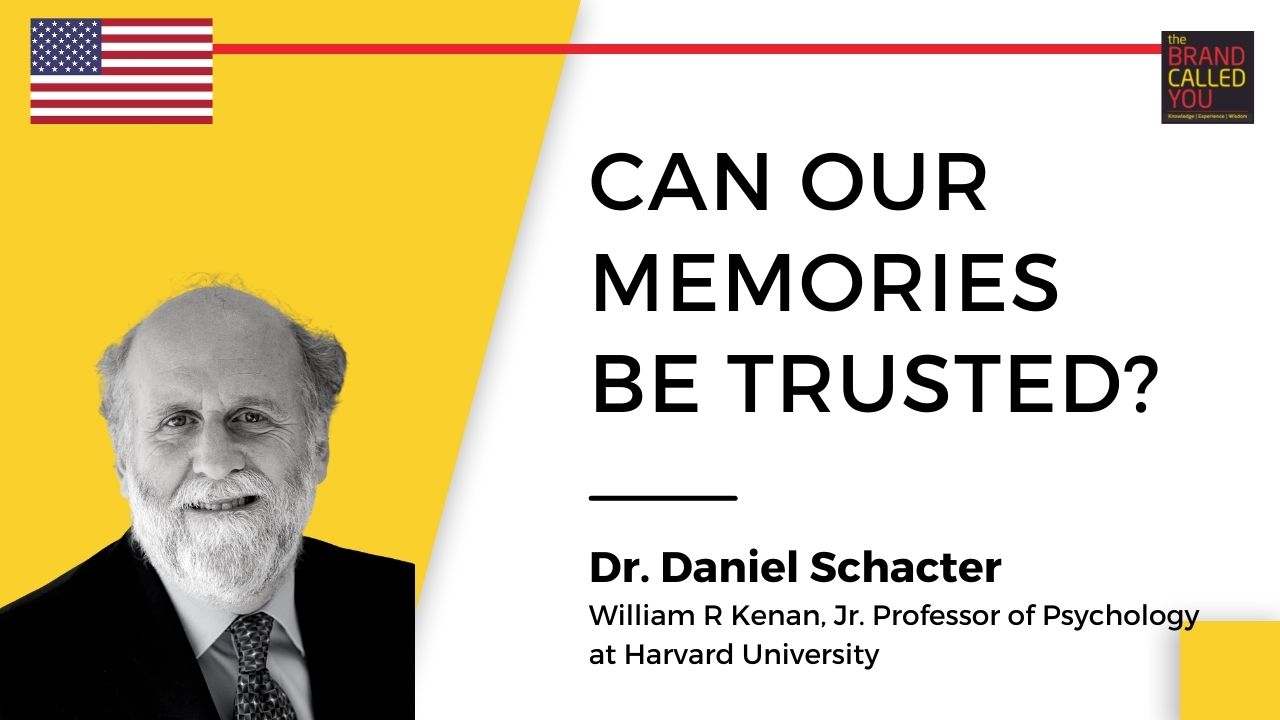Dr. Daniel Schacter, William R Kenan, Jr Professor of Psychology at Harvard University
- Daniel L. Schacter is William R. Kenan, Jr. Professor of Psychology at Harvard University.
Podcast
Overview
Emotional Arousal is a state of heightened physiological activity. This includes having strong emotions like anger and fear, and we go to the emotional arousal state in response to our daily experiences.
00:21- About Dr. Daniel Schacter
- Daniel L. Schacter is William R. Kenan, Jr. Professor of Psychology at Harvard
- University.
- Daniel Schacter has been a professor of Psychology at Harvard University since 1991.
- Many of Schacter’s ideas and findings are summarized in his 1996 book, Searching for Memory, and his 2001 book, The Seven Sins of Memory, both named as New York Times Notable Books of the Year, and both winners of the American Psychological Association’s William James Book Award.
- His specialty is memory.
02:34- Is it possible to convince someone with repetition?
- Certainly, repetition will make just about any statement seem more believable or enhance the experience of perceived truth.
- In the laboratory, it’s been studied under the rubric of something called the illusory truth effect. So just repeating a statement unless it’s totally outlandish and impossible will increase perceived truth in most people.
- Repeated retrieval of information from memory strengthens that memory.
05:54- Neural Coupling
- If you deliver something and are emotionally connected to it, the emotional regions of your brain are lighting up, at exactly the same moment the same regions in the brain of the listener are lighting up.
- Emotional arousal is one of the most potent ways of enhancing vividness.
10:23- Deceptive memory
- When I talk about the seven sins of memory, I have three different kinds of forgetting, I call them Sins of Omission.
- I have four that relate to just distorted and unwanted memories that I call Sins of Commission. That is when memory is present, but it’s either wrong or unwanted.
- Bias or retrospective bias is a very common part of memory, where what we remember about the past is very much influenced by our current psychological state.
Enjoy this podcast?
If you learned new insights about psychology, subscribe and share it with friends!
Love to give us 5 stars? ⭐⭐⭐⭐⭐ If you do, we’d love a review from you. Help us reach more people to keep them in the know as we talk to leaders, high achievers, and thought leaders from diverse backgrounds and nationalities. Excellence can come from anywhere; stay in the know, and hear from emergent high achievers and gurus.
Stay updated with what’s shaping the world today through the latest The Brand Called You Podcast episode. Follow us on iTunes, Spotify, and Anchor.fm.
Don’t forget to follow and message us on these platforms!
Website: https://tbcy.in/
Facebook: https://www.facebook.com/followtbcy
LinkedIn: https://www.linkedin.com/company/tbcy/
Twitter: https://twitter.com/followtbcy
YouTube: https://www.youtube.com/c/followtbcy
Thanks for listening!
Profile
- Daniel L. Schacter is William R. Kenan, Jr. Professor of Psychology at Harvar University.
- Daniel Schacter has been a professor of Psychology at Harvard University since 1991.
- Many of Schacter’s ideas and findings are summarized in his 1996 book, Searching for Memory, and his 2001 book, The Seven Sins of Memory, both named as New York Times Notable Books of the Year, and both winners of the American Psychological Association’s William James Book Award.
- His specialty is memory.


